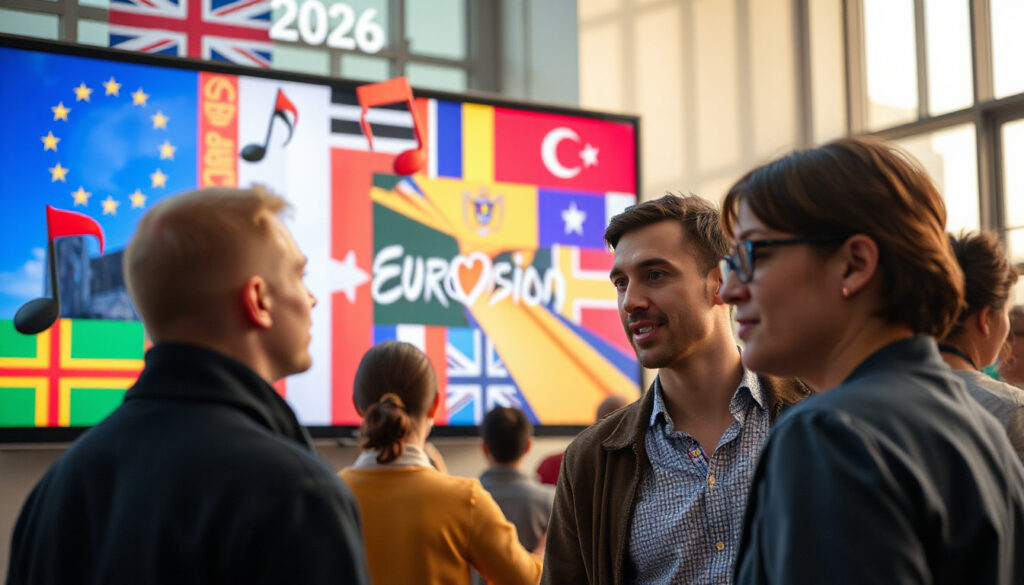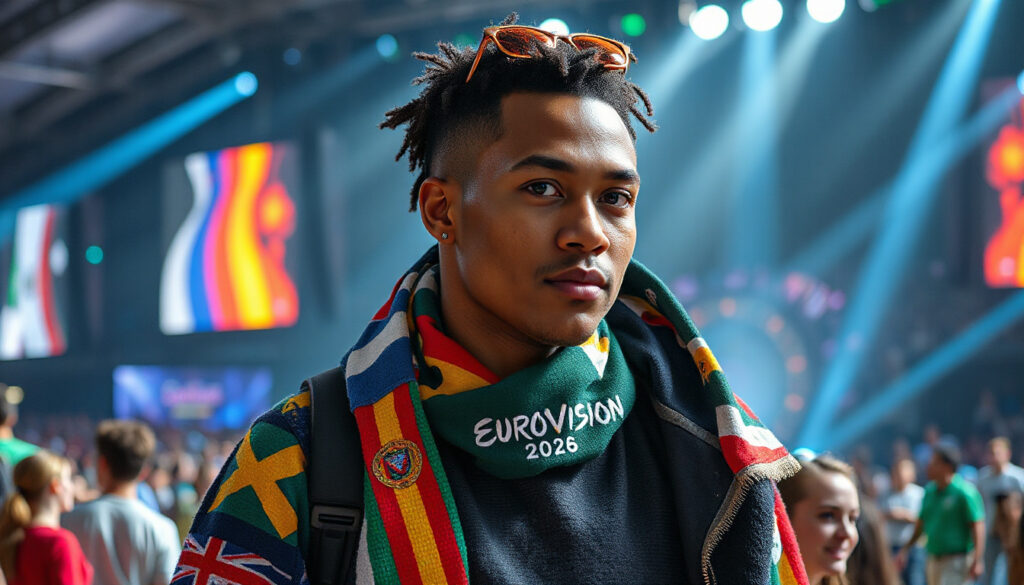The Eurovision Song Contest stands as a sign of music, culture, and media. It readies itself for its 70th edition in 2026. New shifts in broadcast rights and event control change how fans, broadcasters, and other groups will connect with the show. Every organizer, fan, and partner should note these shifts. They tie closely to how viewers in Europe catch the contest. Here we show how these shifts shape the event’s path.

Key Developments in Eurovision 2026 Broadcast Rights
Broadcast rights form the link between the event and its global audience. They tie the contest to who may show it and on which terms. Recently, changes have come out in talks between the European Broadcasting Union (EBU) and program partners:
-
Expanded EBU Broadcast Deals for Major Sports Events:
The EBU signs deals to show large sports events like the FIFA World Cup in 2026 and 2030 in places like Azerbaijan, Iceland, and Malta. This deal, though about football, shows the EBU’s goal to keep high-profile events free for viewers across Europe. -
Host City and Venue Confirmations:
Vienna, Austria, wins the role to host Eurovision 2026. The city picks Wiener Stadthalle as its main arena. Other spots at Rathausplatz and Vienna City Hall join in to provide lively public shows. Broadcasters depend on this steady plan to build clear programs and schedules. -
Official Participation and Voting Dynamics:
By October 2025, about 26 countries plan to join the contest. Broadcasters in Albania, Australia, Azerbaijan, Czechia, France, Germany, Italy, and the United Kingdom tie their fate to the event. They decide between national finals and internal choices. These close ties affect program timing and ad breaks. -
Controversies Threatening Broadcast Stability:
Political strain surrounds Israel’s role amid regional conflicts. Some viewers and broadcasters speak out and may choose to skip Israel. This pressure ties into the event’s smooth production and global viewership and may risk its usual ease of broadcast.
Why These Broadcast Changes Matter
These shifts tie together several themes and tests for large live events.
-
The Value of Free-to-Air Access
The EBU works to tie big cultural moments to free TV. In an era of many online and paid options, keeping Eurovision on free channels means many people can watch it easily. -
Financial Stakes and Market Stress
Broadcast deals tie in the funds to support the show’s production and prize money. If key participants or broadcasters pull out, that ties to less income. Past events show that when a country leaves, fees change and smaller broadcasters may find it hard to join. Israel still ties in deep funds and viewer pull. -
Managing Political Sensitivities
Eurovision was made to tie people together with music. Now, political ties and protests around Israel pull in pressure. Some networks face tight rules from their leaders or the public. This pressure ties into whether they air the event or back it. -
Stable Production and Venues
Vienna and Wiener Stadthalle give a fixed ground for the show. This setup ties well into controls for signal delivery, commentary teams, ad slots, and digital work. A well-set host reduces the risk of live show issues. -
Digital and Multimedia Broadcast Networks
Alongside TV, the EBU ties in radio and online reports like Eurovision News. These channels connect with young and global viewers. They tie in extra views and bring in fresh sponsor interest.
What Eurovision Fans and Broadcasters Should Expect
-
Broadcasters in Participating Countries Should Secure Rights Early:
Reaching quick agreements with the EBU and event organizers ties in a clear broadcast plan and sound ad strategies. -
Viewers Get More Ways to Watch:
Free-to-air TV stays key, but fans now see more online streams and extra content. These links tie in smooth experiences and extra shows. -
Political Events May Change Coverage:
Fans should stay aware as political shifts may tie in changes to how broadcasters show the event. -
Promotion and National Selection Processes Drive Local Interest:
Countries that choose their artist and song via televised selections tie in higher local excitement and better ad ties.
Final Thoughts and Next Steps
Eurovision stays a sign of cultural ties and fun. Yet Eurovision 2026 faces new shifts in broadcast rights, participation, and politics. The EBU’s work to renew free deals, firm up host plans, and use many channels ties in to keeping Eurovision open and appealing.
If you follow Eurovision as a fan, broadcaster, or advertiser, keep these steps close:
- Watch for news from official broadcasters on plans and participant ties.
- Follow how Israel’s role may shift and its impact on the show.
- Try new ways to view the event, such as official streaming sites, for a full experience.
- Follow local selection events that tie in excitement and energy for your area.
These shifts will shape how many fans view Eurovision in 2026 and beyond. Staying alert and ready will tie you in with one of the best music shows online.
Looking forward to Eurovision 2026?
Bookmark official Eurovision sites and your nation’s broadcaster page for the latest news on participant ties, schedule updates, and viewing choices. Whether you watch at home or join live events, the next chapter promises clear moments that bind people together through music.







